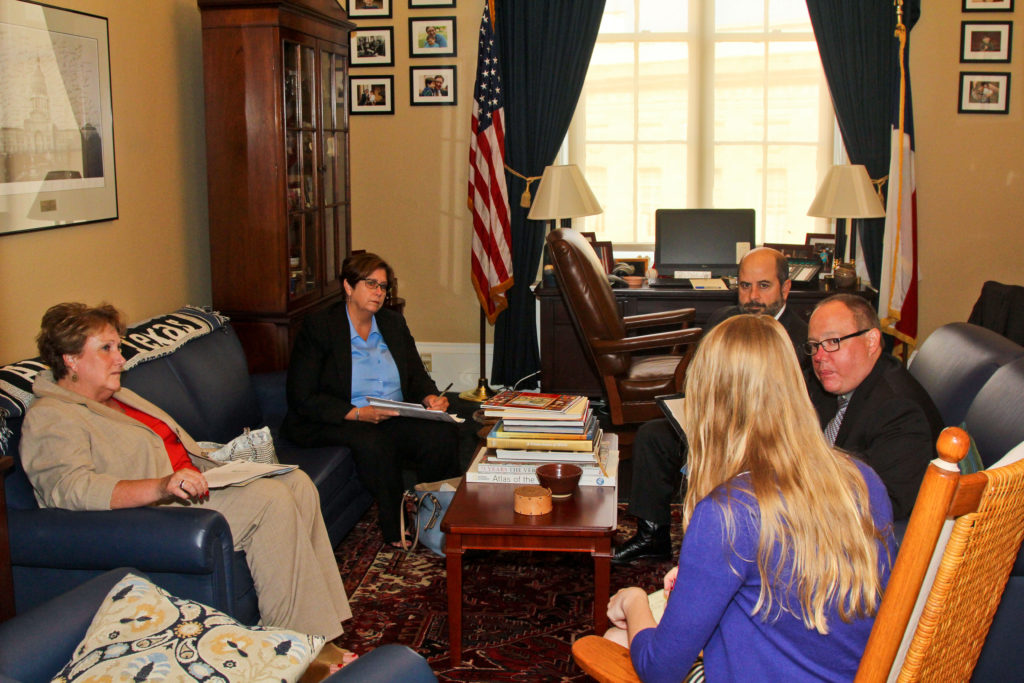

While there are many strategies that NALP members can implement to successfully advocate the interests of landscape professionals, some of the simplest things are also some of the most important. Here are 10 easy things you can do to increase your advocacy effectiveness, better prepare yourself for meetings with decision makers at all levels of government, and help grow the influence and reach of the interests of our nation’s landscape professionals.
- Invest in the future. At least six times a year, take 30 minutes of your time to contact a lawmaker by letter, phone, e-mail, office visit, tweet, etc. That will make you more active than 99.9 percent of all citizens and therefore 99.9 percent more effective likely to be more effective as an advocate. Remember, advocacy should be viewed as a year round activity that requires little effort but can pay huge dividends.
- Be a good winner and a good loser. Don’t burn bridges, make threats, or in any other way act in a manner that could damage your reputation with a lawmaker. Your adversary on one issue may be your ally on the next. Write a thank-you note to the lawmaker no matter what the outcome, and always be courteous to staff. You never know who might be in a position to help you in the future.
- Educate. Remember you are an expert in your field and likely know much more about an issue of importance to landscape professionals than the public official who holds your professional fate in her/his hands. What better way to describe the importance of an issue to a lawmaker than to show him or her up close and personal what it means in actual practice? Invite lawmakers to your office, a job site, or other appropriate locations to put a face on your issue and remember to humanize and personalize issues whenever possible.
- Be flexible. Sometimes you and your lawmaker will have to compromise. If that is the case, make sure you have identified exactly what you are willing to give up in order to still achieve a satisfactory outcome. Legislators at all levels try to please all parties involved whenever possible. As such, they do not like controversy and most often will strive for compromise.
- Be persistent. The legislative process if often extremely slow and lack of progress can become frustrating. You may want to assess what you can realistically achieve now, and work on the rest later. Remember that sometimes the legislative process will take months or even years before finally examining an issue. For this reason once you get involved resolve to stay on top of the issue for the long haul. Odds are on any given issue there is someone working just as hard in opposition to your efforts. So if you don’t stay committed to the cause, it is much more likely that the outcome will an unfavorable one.
- Be truthful. The phrase “you are only as good as your reputation” is particularly relevant in the advocacy arena. Stick to the facts, never exaggerate, and never attempt to mislead. If you are not completely honest in your dealings with decision makers they will notice and your all of your hard work to earn trust and build a positive relationship with a person in a position of influence will be for naught.
- Study up. Include lawmakers on your mailing list for chapter newsletters, and make sure you are on their mailing lists, as well.
- Be nosy. Ask your lawmakers to state their position. If their position agrees with yours, ask what you can do to strengthen that support and how you can get others to help support them. If their position is different from yours, ask what information or show of public support is necessary to change that position.
- Use examples to communicate position. Explain the logic of your position in straightforward terms—jobs, cost, how many people will be affected, etc. Always have detailed information you can give to explain your logic. (It’s a “must leave behind” for office visits). In all communications, be sure to include the bill number and/or name of the legislation or regulation, as well as your name, postal and e-mail addresses, and home and office phone numbers.
- Be an unashamed clock-watcher. Don’t waste anyone’s time. Get to the point fast, and focus on your issue. Keep your visit to no longer than 15 minutes; lawmakers will appreciate your consideration for their busy schedules.
Want to learn from the pros, first hand? Join us at Legislative Day on the Hill, July 10-12, 2016.

